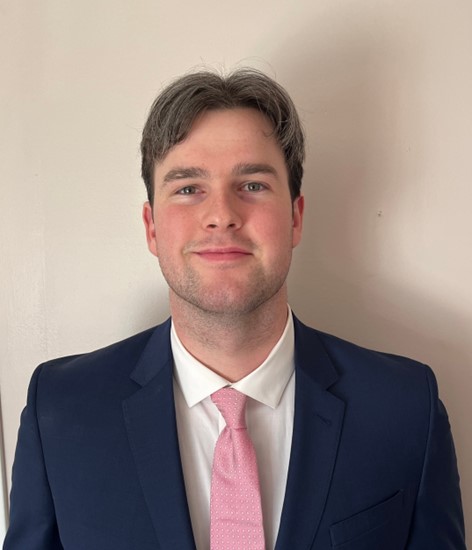
Elijah MacDonald
Elijah MacDonald is a proud member of Michipicoten First Nations in Wawa Ontario who has just completed their third year of Honors Social Work at McMaster University with a minor in Indigenous Studies. This summer, Elijah will be working with Dr. Jill Tinmouth along with other researchers to improve Indigenous cultural safety in Ontario’s cancer screening program.
- Tell us about your research project and what inspired you to choose this particular topic?
My research project this summer is based around improving Indigenous cultural safety in Ontario’s cancer screening program. I am working with a team of skilled researchers around what we can do to promote cancer screening in different reserves in Ontario. There are many different pieces that inspired me to apply to this research project, mainly because I am Indigenous (Anishinaabe) and a member of Michipicoten First Nation near Wawa, Ontario. I am pursuing a minor in Indigenous studies at McMaster University, these courses help me recognize the changes that need to be made in reserves around Ontario and this research project provides an opportunity to be a part of the solution. - Why did you decide to participate in this summer research program, and what do you hope to gain from the experience?
I decided to be a part of this research project because I want to advocate for those whose voices have not been listened to. There is a significant need for better care on reserves all across Ontario, as resources for cancer screening are inadequate compared to those who live off-reserve. Through a micro lens, I want to do my part in being a part of the solution and see that Indigenous Peoples have the resources they need to actively engage in cancer screening made possible through special attention to cultural safety. There are many skills I hope to gain from this research project. I hope to gain knowledge about my Anishinaabe community and other Indigenous communities around Ontario, enriched by what we share and what makes us unique. I hope to gain experience in the medical field, the work that is being done is so impactful and I am already learning so much from the researchers around me. - How does the summer studentship program support you in meeting your career goals?
This summer studentship program supports me in so many ways. When I graduate I want to work in the medical field as a Social Worker. This opportunity does not only open the door for me to do that, but it gives me experience working in the field. In my career I want to work towards improving the care received Indigenous Peoples across Ontario, this position highlights the ways that this is possible and what needs to be done in order to do that. I want my career to be focused on ways to advocate for Indigenous Peoples and seeing that the resources they need are readily available, whether that is medical care, counselling, or other forms of assistance. - In what ways do you think your research could benefit Indigenous communities and/or benefit from Indigenous knowledge?
This research project could benefit Indigenous communities in many different ways, there is a need for improved cancer screening in Indigenous communities and access to the resources necessary for oncological care. This research project focuses solely on how this can be addressed and ensure access to the necessary in the community. This is done in various ways, understanding that mail may not be the best option to send to reserves about the importance of cancer screening. Or focusing on going into reserves and engaging with community wide discussions, such as talking circles, to listen to concerns and recommended improvements regarding cancer screening. Understanding that uncomfortability is a barrier in this process, and doing everything we can as a team to minimize this and make this process as welcoming as possible. Through these talking circles we are being exposed to Indigenous knowledge that inspire collaborative ideas on ways where we can adjust our research to meet the needs of those we are trying to help. - What are the challenges and opportunities that you see for Indigenous students interested in research roles? How can the science community better support these? How can BioCanRx and it’s network members ensure that Indigenous perspectives are included and valued in their research initiatives?
A challenge that many Indigenous students face when looking at research roles is exposure, at times it feels like these positions are only available to a small group of people. I was fortunate enough to be exposed to this position but I know many of my peers were not. Another barrier that we face is the lack of opportunity, some of these research grants may only have space for one Indigenous student if that. I would like to see more involvement of Indigenous students, especially because these research projects are focused on Indigenous communities. It is important that Indigenous students work on these projects because not only does it connect them to their communities but they carry so much knowledge that is overseen at times. From looking at past BiocanRx summer students they are doing an amazing job at including Indigenous Peoples and are able to put them in different research opportunities where they believe they will strive.